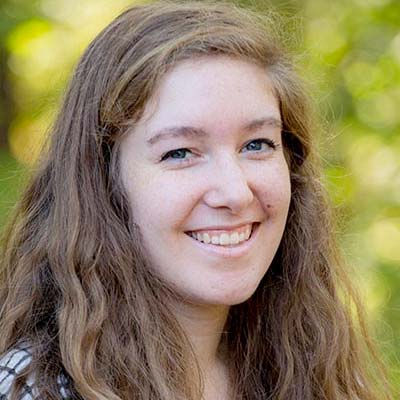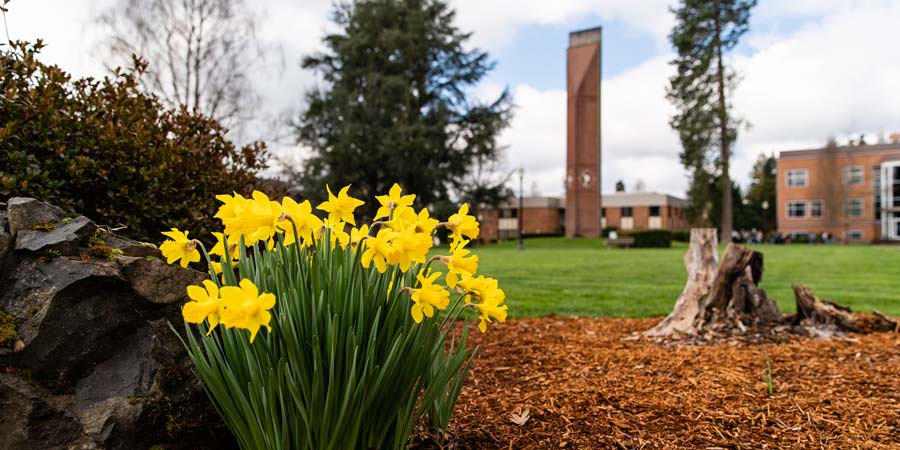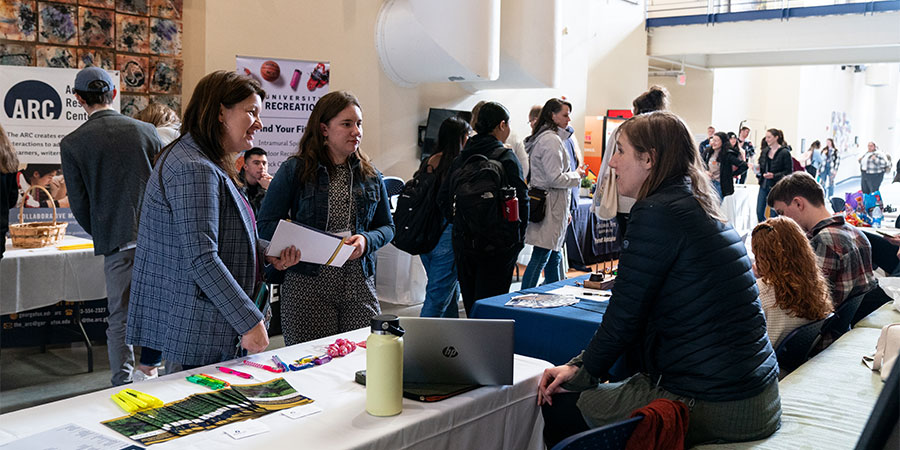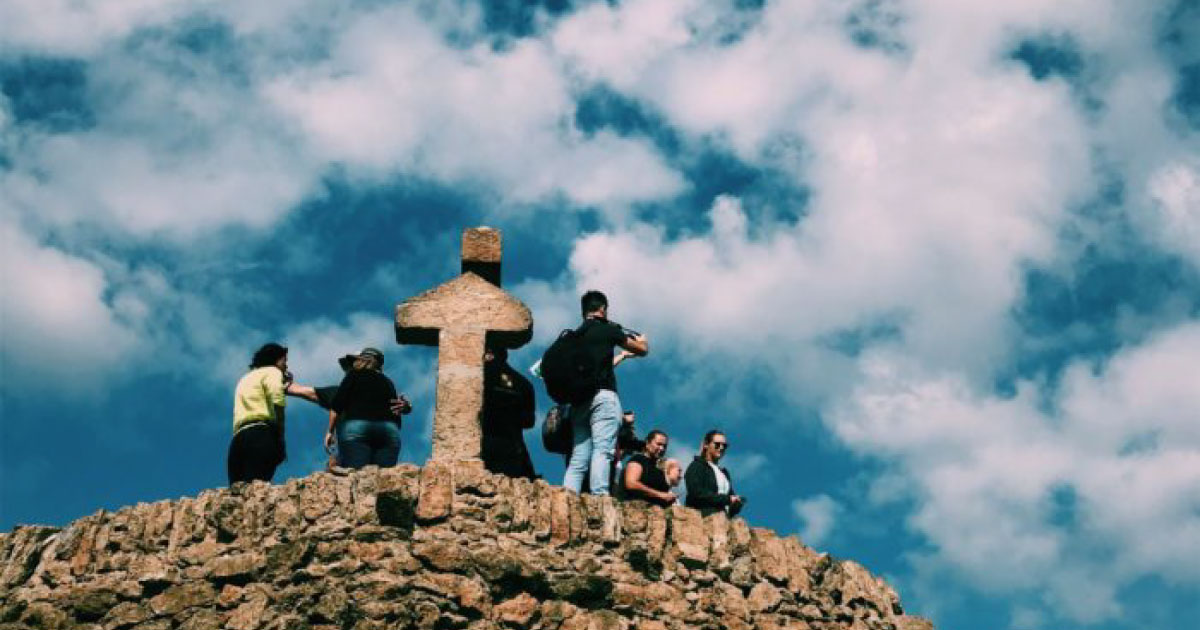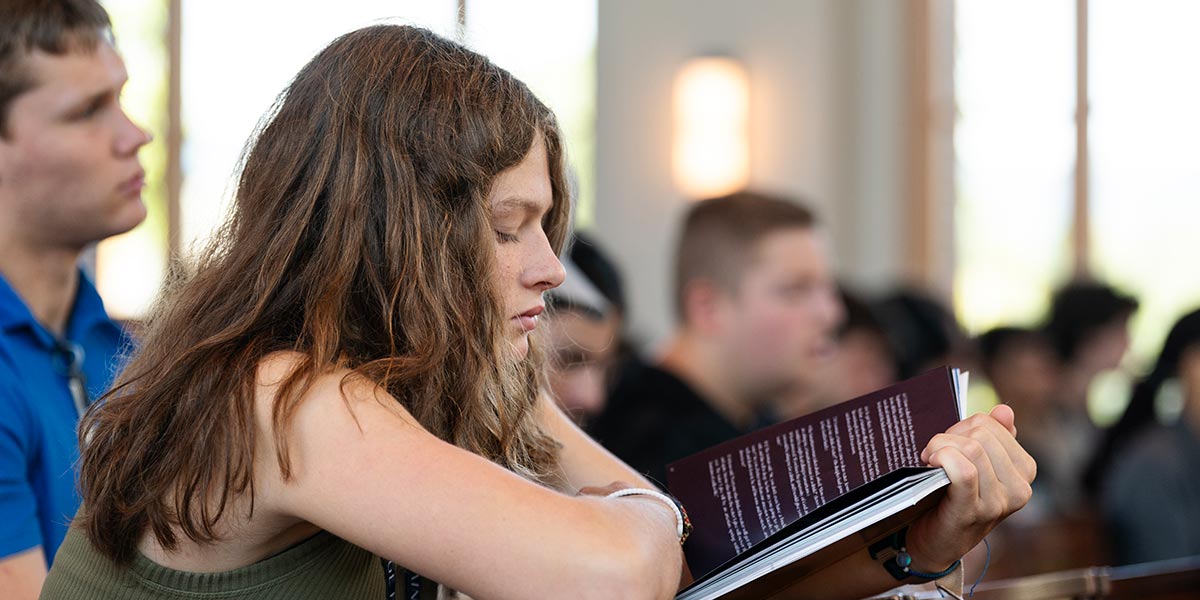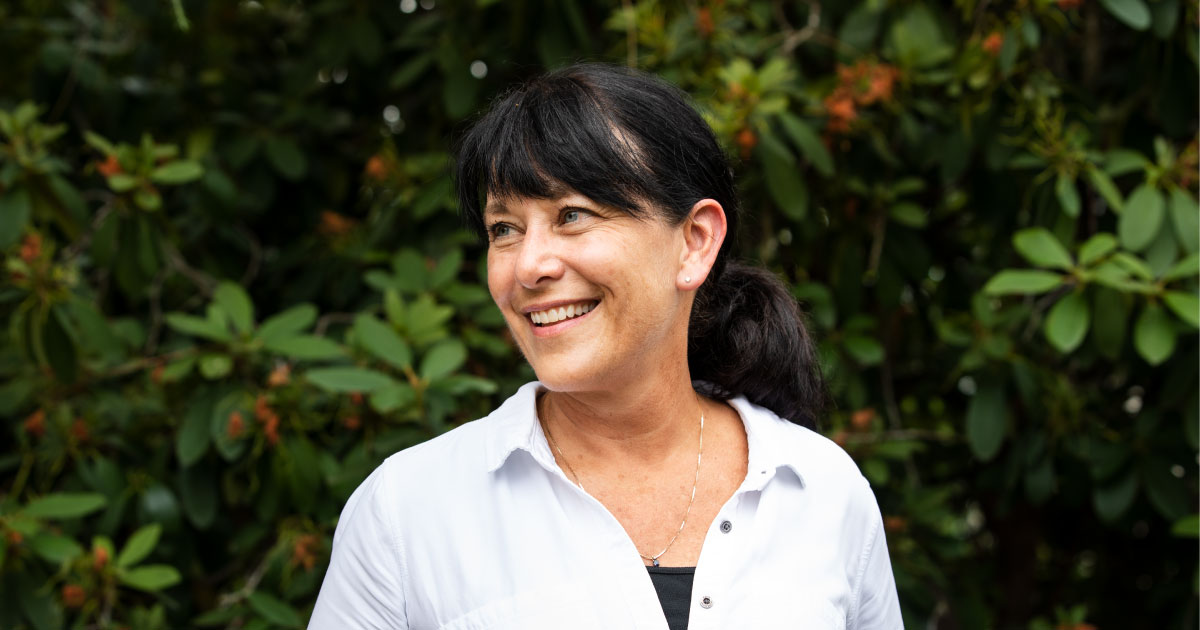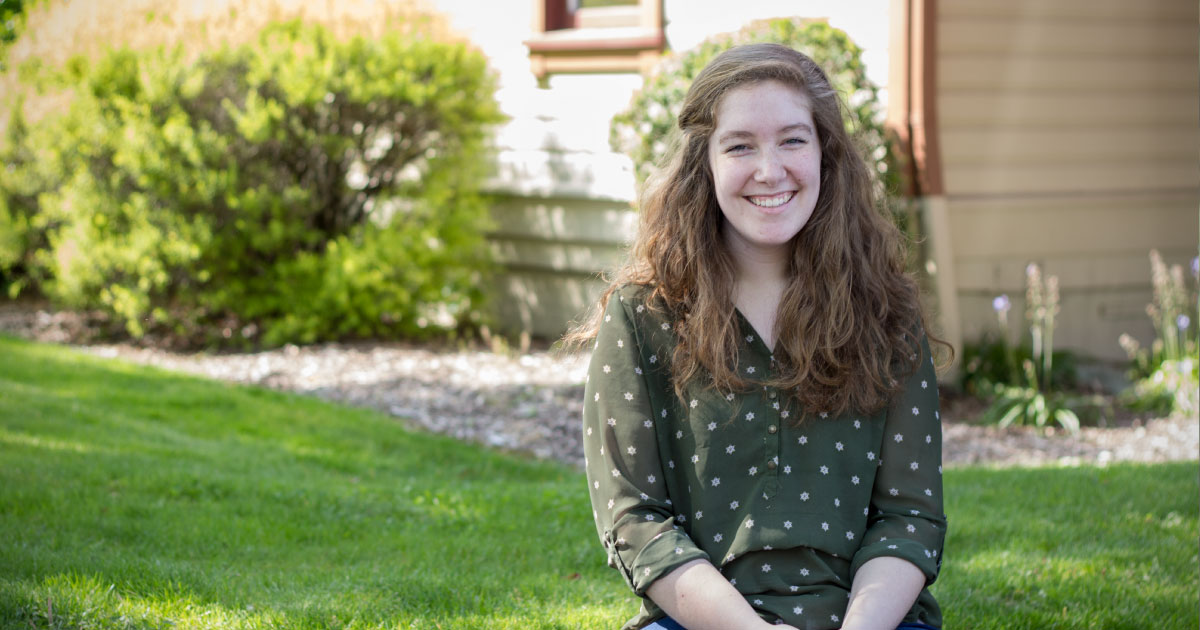
Feeding on Faithfulness
by Lizzy Riese
Lizzy Riese, Program Coordinator, ELED
To be human is to experience pain. To be human is to be disappointed.
These two thoughts have been rolling around in my head the last few weeks, nagging at the back of my mind. Like most people, the last month or so of my life has not looked how I expected. Routines have been disrupted. “Normal” life has been displaced by words like “social distancing” and “quarantine.” FaceTime and phone calls have become much more common in the vacancy that spending less time with friends and family has created. I’ve spent less money on dining out and gas in the last month than perhaps any other season of my adult life.
In addition to the changes that are common for all of us in this season of coronavirus, I’ve had an additional life disruption personally: back surgery. After a year and nine months of struggling with chronic pain, I finally had a discectomy – a procedure during which a surgeon removed a portion of the L5-S1 disc in my spine, which had been pressing on my sciatic nerve, causing sharp, stabbing pain in my right buttock and leg. In some ways this procedure could not have been better timed. It happened just two days after Oregon’s governor announced that all elective medical procedures were to be canceled. The fact that I was still able to have the surgery is nothing short of a miracle in my mind. Had I been scheduled for a few days later, I’m pretty confident it would have been canceled. There is also really no better time to be stuck on a couch with limited mobility than when the rest of the world is also stuck at home in quarantine.
Prior to surgery, I had the expectation that my life would be much easier once this procedure was over. I’d talked to many people who have either had a discectomy or know someone who has, and they all told me the same thing: “You’ll have instant relief from your pain once this is over.” I believed that God was going to immediately heal me with this surgery – that I would wake up and find myself in green pastures. In hindsight, I should have been more cautious in my optimism.
The last few weeks have been sobering. My back is certainly improved, but there is still work to be done before my body has adjusted to its new normal. After nearly two years of tensing every time I experienced sharp pain, my muscles have grown crotchety. They don’t seem to want to cooperate when I try to stretch and move in ways that were impossible for such a long time.
I long to jump into a pool and see if some lap swimming would loosen my muscles, but with the closure of all gyms and pools due to their “nonessential” nature, I’ve been limited to walking. LOTS of walking. It’s true that my pain level has significantly improved in the weeks since surgery, and I am able to do many things now I could not do before my disc was repaired. I can now sit for longer periods of time, bend down to pick things up off the floor or tie my shoes, sit with my legs straight(ish) in front of me when I’m on the floor. But there is still often a dull pain that is undeniably similar to the nerve pain I’ve experienced for the last two years, never as sharp as pre-surgery, but severe enough to be annoying. I’ve realized that sometimes healing requires first more pain.
I’ve been reading through the book of Numbers the last week or so, and I find myself getting so annoyed with the Israelites most days. “Gah, these people are terrible!” I say to myself as I read about their moaning and complaining in the wilderness. I find myself pitying Moses for having to deal with all their crap. God literally led them out of slavery, and all they could do is complain about the menu.
“This isn’t how we expected you to save us!” I can hear them saying to God. “You were supposed to sweep in with a mighty hand and lead us into a land of milk and honey. You were supposed to make our lives easier, not leave us wandering around in the desert. Why can’t you do your job better?” The crazy thing is that God did sweep in with a mighty hand, and he did lead them to a land of milk and honey. But their disobedience and impatience delayed the gifts he intended for them for 40 years. An entire generation missed out on the inheritance God had prepared for them because they could not see the miracles happening right in front of them.
One morning last week, as I woke up, it occurred to me that I hadn’t thanked God for the fact that I was able to have back surgery. Prior to surgery, I had all these visions of running and leaping and rejoicing post-surgery because I’d feel so great once my back was healed. I pictured myself sitting in a chair drinking my coffee in the morning, and just weeping with joy because I was finally able to sit without pain. I’ve sat in a chair almost every morning since having surgery, and I’ve drunk my coffee, cracked open my Bible, and read about this pathetic bunch of people who could not see the miracles God was doing right before their eyes. What a bunch of complainers, I’ve thought. They can’t see God’s faithfulness when it’s right there under their noses.
In addition to Numbers, I’ve also been reading a Psalm every day, and this one struck me the same day I realized I hadn’t thanked God for the healing that came from surgery:
Trust in the LORD, and do good;
Dwell in the land, and feed on His faithfulness.
Delight yourself also in the LORD,
And He will give you the desires of your heart.
Commit your way to the LORD,
Trust also in Him,
And He shall bring it to pass.
He shall bring forth your righteousness as the light
And your justice as the noonday.
Rest in the LORD, and wait patiently for Him…
(Psalm 37:3-7b, NKJV)
I love that phrase at the beginning: feed on hs faithfulness. The man who wrote this psalm, David, went through a lot of terrible circumstances in his life. At a very young age he received an anointing over his life – he was destined to become king of Israel. But pretty much from that point on, his life was one struggle after another. Backstabbing, betrayal, attempted murder, losing a friend who was like a brother. Even when God’s anointing on his life came to fruition and he was named king of Israel, his life was still no walk in the park. Although the entire kingdom was now his, he struggled deeply with his own humanity, falling very much short of the mark of righteousness and reaping the pain that came as a result. He was a broken man, and he knew it.
To be human is to experience pain. To be human is to be disappointed.
I’ve always loved the honesty of David. He calls it like it is. He’s not afraid to ask God to punish people he’s ticked off at, yet he also knows when he himself falls utterly short of deserving God’s grace. Yet we are told he was “a man after God’s own heart.” Sometimes I wonder what it was that set David apart in this way. I don’t think it was his rugged good looks. (My roommate pointed out to me the other day that David is one of the only people in the Bible who was literally so attractive that his facial features were commented on in Scripture.) No, I think it was that he fed on God’s faithfulness. He knew when to give credit where credit was due. He praised God with all of his being, sometimes even within a few breaths of questioning God’s timing. “How long?” he asked God over and over. “How long, O Lord? Will you forget me forever?” But God did not forget him, and he fed on that knowledge. He knew that God could see the bigger picture.
There’s another Man who knew deep suffering in his life. He was another King in Israel, although no one saw it until after he died. He asked lots of questions. He asked God why he had forsaken him. And then, as all humans do, he experienced pain and disappointment. But his was of a more powerful kind. His pain was of the variety that brings others life. His disappointment was so that all of humanity could be reconciled to its Creator. He was faithful so that we could feed on his faithfulness.
Today is day 40 since my back surgery, and my final post-op appointment is later this morning. Slowly but surely, I’ve noticed that my body is adjusting to its new normal. I don’t know how long it will take before I am completely pain-free, but I know that God has been faithful to me. He has healed me, even if it hasn’t been in the dramatic, immediate way I expected. I know that God is fully aware of my humanity. He knows how difficult it can be for me to see past the end of my nose and take in the gifts he has given me. To be human, after all, is to be in need of grace. By grace, I’m learning to slow down and take it in, opening my eyes to the miracles before me.
